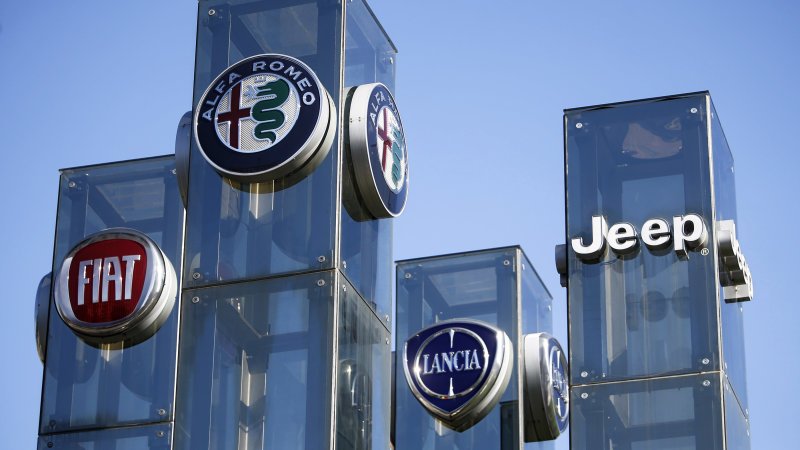The announcement ends FCA's years-long search for a partner, which nearly ended earlier in 2019 when it came close to merging with Renault, PSA's rival. It brings Fiat, Chrysler, Dodge, Ram, Jeep, Alfa Romeo, Maserati, Lancia, Peugeot, Citroën, DS, and Opel/Vauxhall under the same roof. That's a huge portfolio of brands that often overlap, but executives pledged to keep them all open, as well as all their respective factories as a result of the transaction. They're committed to making this big family of automakers work by building on each one's strengths, whether they're technical or regional.
FCA and PSA jointly predicted they'll sell about 8.7 million cars annually around the globe, while posting an €11 billion (about $12.2 million) profit. North America, a strong market for FCA, will provide 43% of its revenues, and 46% will be generated in Europe, where Peugeot's brands are doing better than ever. Together, they plan to achieve €3.7 billion (about $4.1 million) in annual run-rate synergies. They'll notably have the purchasing power to negotiate a better price with suppliers, and they'll merge their research and development efforts where it makes sense to do so.
Over two thirds of the group's annual volume will be built on two shared platforms. One will underpin about three million small cars annually, and the other will serve as the foundation for approximately three million compact and mid-sized cars. Details about these architectures haven't been made public yet, but a quick look at both companies' product portfolios reveals the small car will very likely come from Peugeot. Recent additions to its range, like the second-generation 208, are built on a new architecture named Common Modular Platform (CMP) developed with electric powertrains in mind. Meanwhile, Fiat is still making the cheeky 500 on an evolution of the platform found under the second-generation Panda released in 2003. The bigger architecture could come from FCA, however.
The group's brands will share engines, transmissions, electric powertrains, infotainment systems, various sensors used to power electronic driving aids, and other components like wiring looms, but each one will retain its own identity. Don't expect to see a reworked Jeep Wrangler with Citroën chevrons instead of seven slots, or a born-again Dodge Neon based on the Peugeot 308.
PSA boss and turnaround master Carlos Tavares will run the new company, which will be headquartered in Holland. It will be listed on the Euronext, the Borsa Italiana and the New York Stock Exchange. Its board will consist of 11 members, including five nominated by FCA, five chosen by PSA and Fiat heir John Elkann as chairman. Most board members will be independent.
What's next?
PSA and FCA said "I do," but wedding two giants is easier said than done. The merger is expected to take 12 to 15 months, so it might not be finalized until early 2021. This generous time frame gives both sides plenty of time to hammer out details like how the merger will affect PSA's American comeback plans. The company left our market when Peugeot departed in August 1991. It recently planned to send the brand back to our shores in the early 2020s. Before the merger, the move made a lot of sense: America remains one of the largest new car markets in the world, and gaining a foothold in it could significantly boost PSA's annual sales. After the merger, establishing Peugeot in the United States might be more of a headache than it's worth. FCA evidently has a huge presence here, and it also has a growing number of brands in need of a significant overhaul.
Will reintroducing Americans to Peugeot (and, to French cars in general) make more sense than figuring how Chrysler will survive the 2020s, or expanding Alfa Romeo's share of the luxury market? Is it worth creating Peugeot showrooms across the United States when Fiat dealers have almost nothing to sell? We expect these questions (and others) will be answered in the coming year.
Related News



